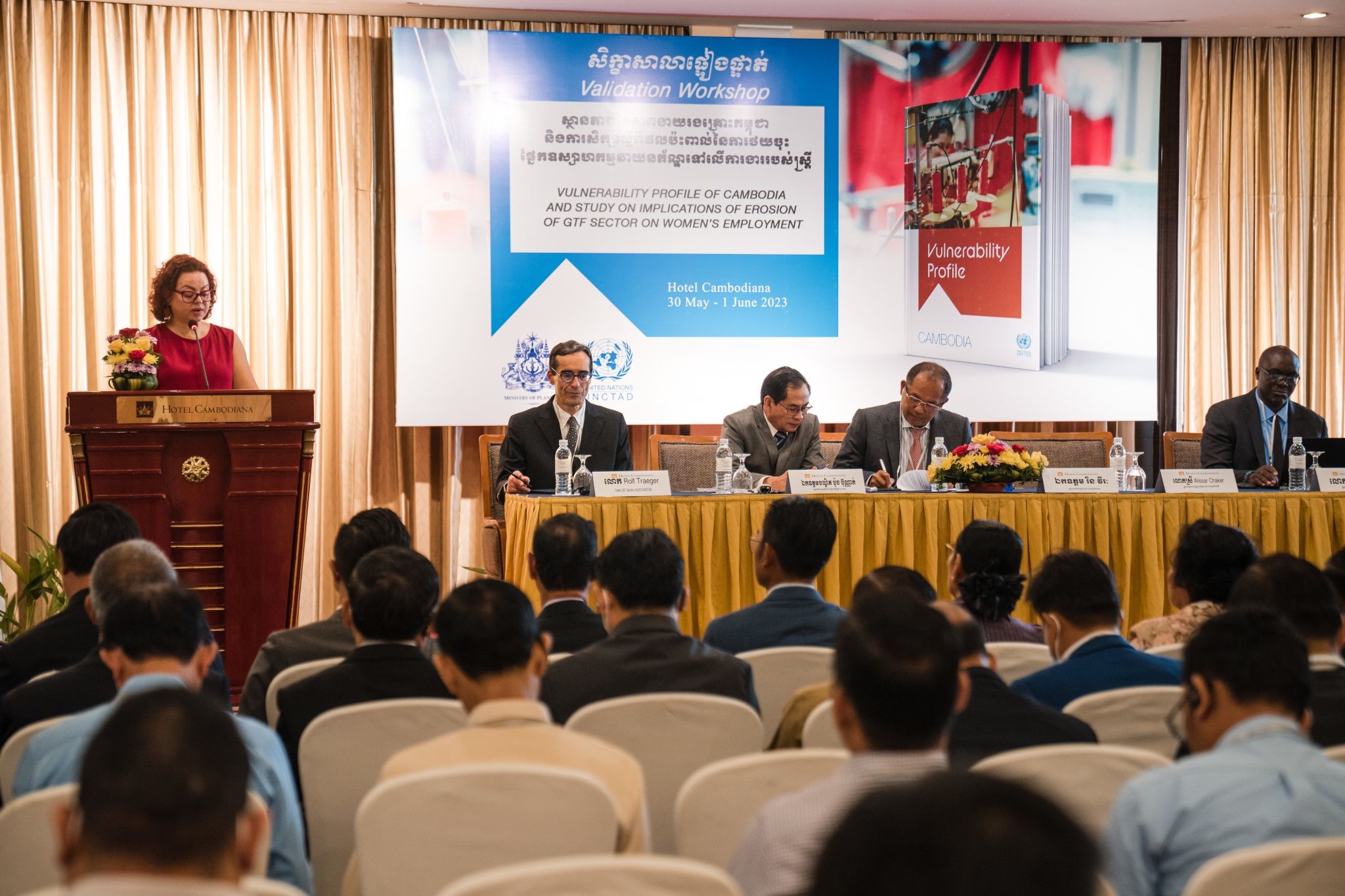Opening Remarks of Ms. Alissar Chaker, UNDP Resident Representative on behalf of the UNCT
Validation Workshop for Cambodia's Vulnerability Profile
May 31, 2023

Ms. Alissar Chaker (in red dress)
• H.E. Chhay Than, Senior Minister, Minister of Planning, Chair of Cambodia’s Graduation Committee
• Mr. Arunabha Ghosh, Committee for Development Policy (CDP), Rapporteur for Cambodia
• Mr. Junior Davis, Head, Policy and Research Branch, Division for Africa, Least Developed Countries and Special Programmes, the United Nations Conference on Trade and Development (UNCTAD)
Excellencies, Ladies and Gentlemen,
It is my honour to represent today the UN Country Team in Cambodia for launching the Vulnerability Profile validation workshop.
In 2021, Cambodia fulfilled for the first time all of the three basic criteria necessary for graduation from the Least Developed Countries (LDC) status. These were the Gross National Income per capita (at $1,377 and therefore above the $1,222 threshold), the Human Assets Index (at 74.3 higher than the graduation requirement of 66) and the Economic and Environment Vulnerability Index (at 30.6 meeting the requirement of 32 or below). The latter would need more work given the socioeconomic impacts of COVID-19, inflation and prices hikes.
Cambodia will be re-assessed again in 2024 by the United Nations Committee for Development Policy and could be recommended for graduation and could graduate as early as 2027.
This is a remarkable progress achieved during the past two decades. Globally, as of 2022, 16 out of 46 LDCs have met the graduation criteria at least once, seven of which are officially graduating.
Today, LDC graduations are taking place in more challenging conditions caused by the COVID-19 pandemic, the war in Ukraine that triggered food and fuel price hikes and inflation, and the climate crisis, to name a few. The UNCTAD national vulnerability profile is, thereby, an important source of information for increasing the country’s chances for achieving structural social and economic progress towards and beyond graduation from the LDC category. It includes country-specific analytical material on the implications of graduation; vulnerability assessments and resilience-building; relevant recommendations for policymakers on preparing for the global landscape after graduation, particularly after phasing-out of financial and technical cooperation and trade-related international support measures. These include preferential market access for goods, services and service suppliers, special treatment on obligations under WTO rules and certain regional agreements, as well as technical assistance and capacity-development.
I appreciate particularly the recommendations on investing in people’s education, skills, and opportunities which are essential for human development but also for attracting quality FDI, and the special analysis on women’s economic empowerment and more gender-responsive strategies. Cascading global crises have exacerbated existing gender inequalities, such as access to healthcare, education, and economic opportunities. Thus, more targeted, and focused attention is needed to remedy and prepare women for change.
Ladies and Gentlemen,
The United Nations stands ready to support Cambodia’s national strategy for smooth transition from the Least Developed category in partnership with development and trading partners to ensure that development efforts are not disrupted by graduation.
I look forward to the outcomes of the discussions to be held over the next days on the key areas of vulnerability and recommendations to support Cambodia in its smooth transition.
Thank you.

 Locations
Locations



